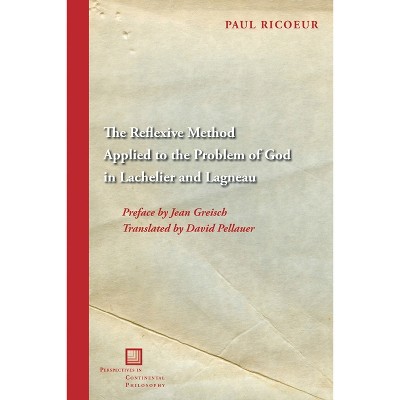Sponsored

What Should We Do with Our Brain? - (Perspectives in Continental Philosophy) by Catherine Malabou (Paperback)
In Stock
Sponsored
About this item
Highlights
- Recent neuroscience, in replacing the old model of the brain as a single centralized source of control, has emphasized "plasticity," the quality by which our brains develop and change throughout the course of our lives.
- About the Author: Catherine Malabou, holder of Visiting Chairs in numerous North American universities, teaches philosophy at the CRMEP (Center for Research in Modern European Philosophy) at Kingston University (UK).
- 120 Pages
- Philosophy, Mind & Body
- Series Name: Perspectives in Continental Philosophy
Description
Book Synopsis
Recent neuroscience, in replacing the old model of the brain as a single centralized source of control, has emphasized "plasticity," the quality by which our brains develop and change throughout the course of our lives. Our brains exist as historical products, developing in interaction with themselves and with their surroundings.
Hence there is a thin line between the organization of the nervous system and the political and social organization that both conditions and is conditioned by human experience. Looking carefully at contemporary neuroscience, it is hard not to notice that the new way of talking about the brain mirrors the management discourse of the neo-liberal capitalist world in which we now live, with its talk of decentralization, networks, and flexibility. Consciously or unconsciously, science cannot but echo the world in which it takes place. In the neo-liberal world, "plasticity" can be equated with "flexibility"--a term that has become a buzzword in economics and management theory. The plastic brain would thus represent just another style of power, which, although less centralized, is still a means of control. In this book, Catherine Malabou develops a second, more radical meaning for plasticity. Not only does plasticity allow our brains to adapt to existing circumstances, it opens a margin of freedom to intervene, to change those very circumstances. Such an understanding opens up a newly transformative aspect of the neurosciences. In insisting on this proximity between the neurosciences and the social sciences, Malabou applies to the brain Marx's well-known phrase about history: people make their own brains, but they do not know it. This book is a summons to such knowledge.Review Quotes
The mind is a mirror; a projector; a computer; an economy; it is a self-creating ecology, a wheat field blown by a correspondent breeze. While Catherine Malabou can appreciate the power of a fast-branching metaphor, she begins with the observation that we, the ones who possess the minds that make the metaphors, are mostly disconnected from cognitive systems. Malabou, instead of offering yet another application of research on the brain to yet another sub-discipline, offers a perspective on the field. Instead of rigid determinism, she looks at plasticity, the ability of brains to adapt, to sculpt forms, to embody history, but also to undo past formations, at times explosively. Instead of finding reasons to go on mindlessly accumulating, connecting, and distributing, Malabou hints at what history might become if we are able, as a society, to step back from our necessary but flawed metaphors and become conscious of the brain." CHECK BEFORE CHANGING
OR "The mind is a mirror; a projector; a computer; an economy; it is a self-creating ecology, a wheat field blown by a correspondent breeze. Catherine Malabou appreciates the power of a fast-branching metaphor, but she also knows that we are the ones who possess the minds that make the metaphors. Malabou, instead of offering yet another application of research on the brain to yet another sub-discipline, offers a perspective. Instead of rigid determinism, she looks at plasticity, the ability of brains to adapt, to sculpt forms, to embody history, but also to undo past formations, at times explosively. Instead of finding reasons to go on mindlessly accumulating, connecting, and distributing, Malabou hints at what history might become if we are able, as a society, to step back from our necessary but flawed metaphors and become conscious of the brain.-----Joseph Tabbi, author of Cognitive FictionsMalabou dares to articulate powerfully an inchoate feeling that many share, but few have so far given sufficient expression: the sense that, despite all the exciting advances and insights into the functioning of the brain, the predominant narratives that are routinely spun, the stories that are being told about neuronal organization are remarkably lacking in spirit, creativity, or possibility.-- "--Journal of Consciousness Studies"
As a rule, neuroscientists avoid two things like a vampire avoids garlic: any links to European metaphysics, political engagement and reflection upon the social conditions which gave rise to their science. Catherine Malabou does exactly this: she provides a Hegelian reading of neurosciences, based on the concept of plasticity, and she reflects upon the uncanny parallels between the model of human mind proposed by neuroscientists and the structure of today's capitalism. For this alone - not to mention a genuine and highly qualified contribution to neuroscience itself - the book is a phenomenal achievement.-----Slavoj Zizek, University of Ljubljana
About the Author
Catherine Malabou, holder of Visiting Chairs in numerous North American universities, teaches philosophy at the CRMEP (Center for Research in Modern European Philosophy) at Kingston University (UK). The most recent of her books are, Changing Difference: The Feminine in Philosophy, and, with Judith Butler, You Will Be My Body for Me.
Sebastian Rand is Assistant Professor of Philosophy at Georgia State University.Shipping details
Return details
Trending Philosophy











